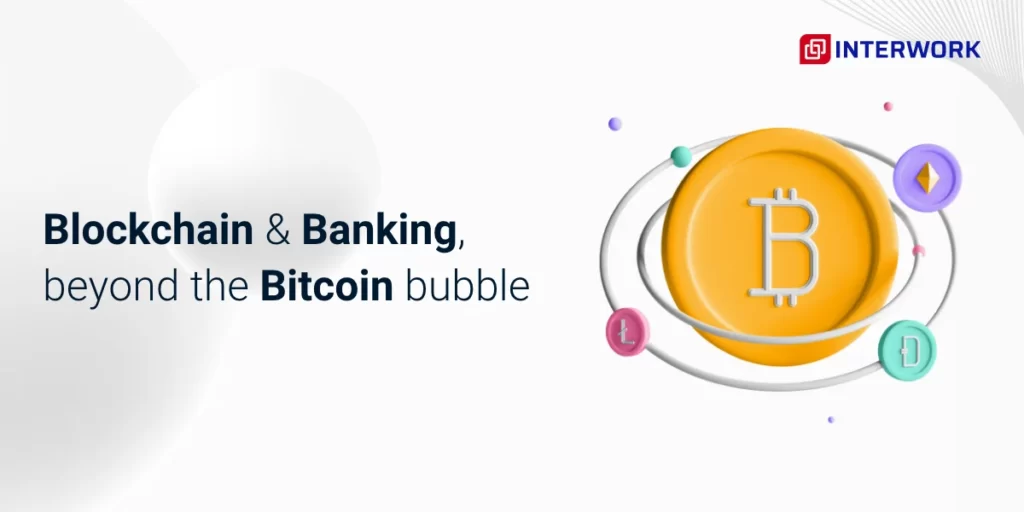Smart Manufacturing and ERP: Leveraging Industry 4.0 for Better Functionality
In the current world of dynamic industrial environment, Smart Manufacturing…

Banking is mainly one of the most centralized and opaque industries, making the legacy financial ecosystem a prime target for Blockchain adoption.
In the original Bitcoin white paper, cryptocurrency is labelled as a Peer to Peer (P2P) electronic cash system, highlighting the potential blockchain technology holds to transform the current financial ecosystem. Various characteristics of Blockchain such as decentralized, immutable, and transparent make it appealing to the banking and finance industries.
The banking and finance sector is prone to errors and fraud being operating on the basis of highly dependent manual networks. This could lead to a crippled money-management system. As per Global Fintech Report 2017, 77% of Fintech institutes expect to adopt blockchain as part of an in-production system or process by 2020.
One of the most talked-about topics today is Blockchain in Banking & Financial Services. If fully adopted, it will enable banks & financial institutions to process payments more quickly and more accurately while reducing transaction processing costs.
All major banks are looking to adopt blockchain which could be used for money transfers, record keeping, and other back-end operations.
Traditional banks are highly aware of the potential blockchain technology holds to disrupt the financial sector. Major international banks — such as JPMorgan, Bank of America, and Goldman Sachs — are already heavily invested in the blockchain industry.
The impact of Blockchain Technology in the Banking Sector is quite apparent. More than 1.7 billion individuals around the world currently lack access to basic banking or financial services as per the data released by the World Bank. Further studies done by the World Bank showcase that blockchain technology holds powerful potential for promoting financial inclusion to the unbanked and underbanked.
Now, let’s briefly look at some practical use cases for Blockchain in Banking & Financial Services industry:
45% of financial intermediaries like money transfer services and stock exchanges are prone to financial fraud routinely. Blockchain technology would help to get rid of some of the current crimes committed online against financial institutions.
Banks and Financial institutions spend anywhere from $60 million to $500 million yearly to process Know your Customer (KYC) and customer due diligence regulations as per a Thomson Reuters Survey. Blockchain would allow an organization to access the verification details of a client by another organization, thus avoiding the repetition of the KYC process & reducing administrative costs.
Smart contracts would be helpful in increasing the speed and simplifying complex processes when used for financial transactions. A Smart Contract will also ensure the transfer of accurate information as the transaction will be validated only if all the written conditions of the code are met.
The web network that records financial transactions costs investment banks billions of dollars to run. According to Accenture, the biggest investment banks could save $10bn by bringing in blockchain technology to improve the efficiency of clearing & settlement.
Trade Finance which is paper-intensive is considered to be the most powerful application of blockchain. The electronic decentralized ledger gives all the participants, including banks, the ability to access a single source of information and allows them to track all documentation and validation of ownership of assets digitally.
Blockchain brings higher security with minimal lower costs to process payments between organizations and their clients and even between banks themselves. It would eliminate all the intermediaries in the payment processing system.
Public blockchain specifically is a globally distributed ledger system. It’s public & permission-less network is free and open for anyone to join, read, and write. Entire data is hosted on public servers. So, anonymity and data privacy are significant challenges to be managed.
In many aspects, the banking and financial industry stands on private, mission-critical and sensitive data. Very few aspects of this industry, apart from their promotional brochures, can probably fit into the world of public blockchains.
On the other hand, Private and Permissioned Blockchains seem to be tailor-made for the financial industry with a built-in access-control mechanism. This indicates that only authorized personnel can join, read or write to this network. Depending on how we tune the access control, this can become a very powerful tool with trustworthiness and scalability to bounce.
Private and permissioned blockchain. Does this sound a lot like a fancy name for distributed ledger technology? No, it’s not. The value a privately managed, fully-permissioned blockchain brings over traditional databases is integrity through cryptographically signed history.
In the current times, Blockchain as a technology is getting well worth the attention in the financial sector which is beyond the bitcoin bubble. If we take a practical approach, and carefully study the design and performance characteristics of each blockchain implementation, it can turn out to be a game-changer to use in Blockchain in Banking & Financial Services industry.
Moreover, some of organizations are also investing heavily in such research and tests conducted by startups to develop solutions based on the blockchain. With Private and Permissioned Blockchains entering the current scenario, a lot of problems could be solved while making the financial system more transparent, easy to access and reliable.